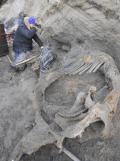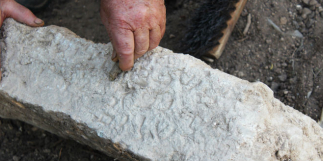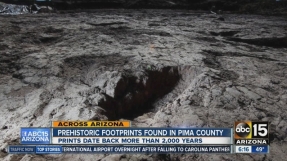
Jerusalem, the capital of Israel, is not only important in the biblical sense, being the place where Jesus Christ was raised as a child. It is also increasingly becoming a wealthy source of archaeological finds, which give an idea how ancient people from this area lived.
Archaeologists from the Israel Antiquities Authority (IAA) recently unearthed a 7,000-year-old settlement in the predominantly Arab neighbourhood of Shuafat in northern Jerusalem while they were conducting a pre-construction survey prior to building a new road.
According to a report from CBN News, the ancient settlement included two houses, where well-preserved floors, pottery, beads and tools were found.
Dr. Omri Barzilai, head of the IAA's prehistory branch, said the recently discovered ancient settlement likely dates back to the 5th Century B.C., or the so-called Chalcolithic period.
This period, Barzilai explained, marked the time when people switched from using stone tools to those made of copper. What's more unusual is the fact that artefacts from this period were unheard of in the past from this area.
"The Chalcolithic period is known in the Negev, the coastal plain, the Galilee and the Golan, but [it] is almost completely absent in the Judean Hills and Jerusalem," Barzilai told CBN News.
Excavation director Ronit Lupo, meanwhile, explained that the tools excavated from the site, such as flint, axes and other building materials, show that ancient people who lived in Israel had advanced technological skills.
"Apart from the pottery, the fascinating flint finds attest to the livelihood of the local population in prehistoric times: small sickle blades for harvesting cereal crops, chisels and polished axes for building, borers and awls, and even a bead made of carnelian, indicating that jewelry was either made or imported," Lupo also told CBN News.
"The grinding tools, mortars and pestles, like the basalt bowl, attest to technological skills as well as to the kinds of crafts practiced in the local community," she added.
Lupo further revealed that a few bones of sheep, goat and cattle were also retrieved in the archaeological site, which will be used to determine how early people in Israel ate.
"These will be analysed further in the Israel Antiquities Authority laboratories, permitting us to recreate the dietary habits of the people who lived here 7,000 years ago and enhancing our understanding of the settlement's economy," she said.

















